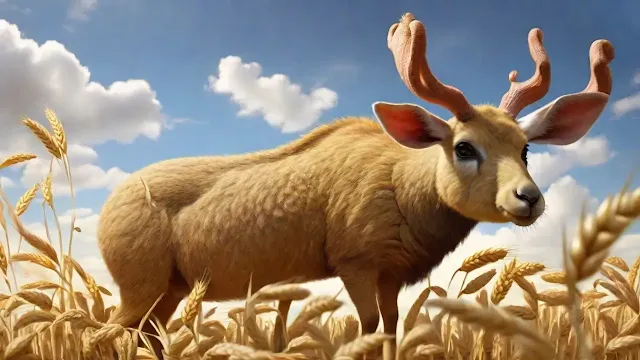What Animal Does Gluten Come From?
Gluten has become a buzzword in the world of nutrition and health, often associated with dietary restrictions and sensitivities. But have you ever wondered what animal does gluten come from? In this article, we'll explore the origins of gluten, its role in various foods, and how it affects our bodies. Whether you're someone looking to understand gluten better or aiming to make informed dietary choices, read on to uncover the truth about this protein.
 |
| What Animal Does Gluten Come From? |
Table of Contents
- Introduction
- The Source of Gluten
- Understanding Gluten's Role
- Gluten Sensitivity and Health Impacts
- Common Myths about Gluten
- Questions and Answers
- Conclusion
Introduction
What animal does gluten come from? This question often arises due to the misconception that gluten originates from animals. However, the reality is that gluten is not derived from animals at all. Instead, it is a protein complex found in certain grains, primarily wheat, barley, and rye. Gluten plays a crucial role in the texture and elasticity of many foods, making it a staple ingredient in various culinary preparations.
The Source of Gluten
Gluten is naturally present in the seeds of wheat, barley, and rye plants. It develops during the germination process and serves as a storage protein to nourish the growing plant. While gluten itself is not found in animals, these grains can be used as feed for livestock. However, the gluten protein is broken down during digestion and does not pass through to the animal products that humans consume.
Understanding Gluten's Role
Gluten plays a vital role in giving dough its elasticity and the ability to rise when baked. This is particularly important in the production of bread, pasta, and other baked goods. When flour is mixed with water, gluten forms a network that traps gases produced by yeast, causing the dough to expand. This results in the airy and chewy texture characteristic of many baked products.
Gluten Sensitivity and Health Impacts
Some individuals experience gluten sensitivity, a condition characterized by adverse reactions to gluten consumption. The most severe form of gluten sensitivity is celiac disease, an autoimmune disorder that damages the lining of the small intestine. People with celiac disease must strictly avoid gluten to prevent digestive discomfort, malnutrition, and other serious health issues.
Non-celiac gluten sensitivity is another condition where individuals experience symptoms similar to those of celiac disease but without the autoimmune response. Common symptoms include bloating, abdominal pain, and fatigue. While the exact cause of non-celiac gluten sensitivity is still debated, many people find relief by adopting a gluten-free diet.
Common Myths about Gluten
There are several misconceptions surrounding gluten that have led to confusion about its origins and effects on health. One common myth is that gluten is present in all grains, which is untrue. Grains such as rice, corn, oats, and quinoa are naturally gluten-free and safe for individuals with gluten sensitivities to consume. Another myth is that gluten-free diets are inherently healthier for everyone, which is not accurate unless there is a medical necessity.
Questions and Answers
Is gluten found in meat?
No, gluten is not found in meat. It is a protein present in certain grains like wheat, barley, and rye.
Can animals be a source of gluten in food?
No, animals are not a source of gluten. However, animals raised for consumption might be fed grains containing gluten, which doesn't transfer to the animal products we consume.
What are the symptoms of gluten sensitivity?
Symptoms of gluten sensitivity can vary but may include digestive issues, fatigue, headaches, and joint pain.
Is a gluten-free diet necessary for everyone?
No, a gluten-free diet is essential only for individuals with celiac disease or non-celiac gluten sensitivity.
Can you find gluten in fruits and vegetables?
No, fresh fruits and vegetables are naturally gluten-free. Gluten is primarily found in grains and grain-based products.
Conclusion
In conclusion, the animal source of gluten is nonexistent as gluten is derived from grains like wheat, barley, and rye. Understanding the role of gluten in food preparation and its potential impact on health is crucial, especially for individuals with sensitivities or celiac disease. Remember that gluten-free diets are not necessary for everyone and that grains like rice, corn, and quinoa provide gluten-free alternatives. By making informed choices, you can ensure a balanced and satisfying diet that aligns with your individual needs.
Whether you're seeking clarity on gluten's origins or looking to improve your dietary choices, this article has provided insights into the world of gluten and its relationship with our health.


